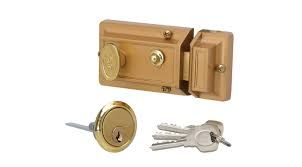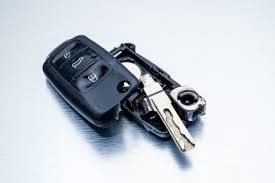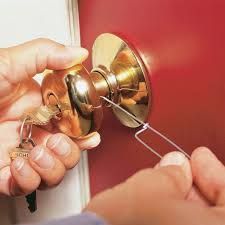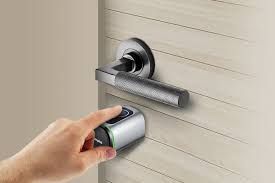Difference between Residential & Commercial Locksmith
Welcome to our insightful exploration of the distinction between residential and commercial locksmith services. As seasoned experts in the locksmithing field, we understand the crucial differences between catering to the needs of homeowners and businesses alike. In this blog post, we'll unravel the unique intricacies of each domain, shedding light on the specialized skills and approaches required to ensure the security and peace of mind of our clients.
Join us as we delve into the world of locks, keys, and security systems, unraveling the threads that weave together the fabric of residential and commercial locksmithing. Together, we'll uncover the secrets to providing unparalleled protection and peace of mind, whether it's for your humble abode or bustling business premises.
1. Residential vs. Commercial Locksmiths:
When considering the realm of locksmith services, it's essential to understand the distinctions between residential and commercial locksmiths. Residential locksmiths specialize in addressing the security needs of homes and apartments, focusing on services such as lock installation, repair, and rekeying for doors, windows, and safes. They also provide assistance with home lockouts, key duplication, and installation of security systems tailored to residential properties. On the other hand, commercial locksmiths cater to businesses, offices, and industrial facilities, offering a broader range of services to meet the unique security requirements of commercial spaces. From access control systems and master key systems to panic hardware and high-security locks, commercial locksmiths are equipped to handle the complexities of securing commercial properties effectively.
Dive into read about "How much does it cost for a locksmith" to gain insights into the factors influencing locksmith service pricing and how to budget effectively for your security needs. Explore "Unlocking Security Solutions for Padlocks and Cabinet Locks" to discover specialized locksmith services for securing cabinets, drawers, and other storage units in both residential and commercial settings.
2. Differences: Home vs. Business Locksmiths:
In the realm of locksmithing, the differences between home and business locksmiths extend beyond the types of properties they serve. While residential locksmiths focus on the security needs of individual homeowners and tenants, business locksmiths deal with the multifaceted security challenges faced by commercial enterprises. Residential locksmiths prioritize services like lock installation, repair, and rekeying for doors, windows, and home safes, catering to the unique needs of households. Conversely, business locksmiths specialize in implementing comprehensive security solutions for commercial properties, including access control systems, master key systems, and high-security locks tailored to the specific requirements of businesses, offices, and industrial facilities.
Delve into "How to prevent home lockout" for expert tips on safeguarding your home against lockouts and enhancing residential security measures. Explore "Emergency Situations: 24/7 Car Key Replacement Services Explained" to learn about the round-the-clock locksmith services available for addressing emergency lock and key issues in both residential and commercial settings.
3.Residential vs. Commercial Locksmiths:
As we delve into the realm of locksmithing, one of the fundamental distinctions we encounter is between residential and commercial locksmiths. Residential locksmiths primarily cater to the needs of homeowners, offering services tailored to securing residential properties. From installing new locks and deadbolts to repairing or replacing existing ones, residential locksmiths specialize in enhancing the security and safety of homes. On the other hand, commercial locksmiths focus on the unique security challenges faced by businesses and organizations. They are adept at installing high-security locks, access control systems, and surveillance solutions designed to protect commercial premises and assets. By understanding the differences between these two domains, clients can choose the locksmith services that best align with their specific needs and requirements.
4. Differences: Home vs. Business Locksmiths:
When it comes to locksmith services, the distinction between home and business locksmiths lies in the specialized expertise and solutions they offer. Home locksmiths are skilled in addressing the security needs of residential properties, focusing on enhancing the safety and protection of homeowners and their families. They excel in tasks such as rekeying locks, installing new hardware, and providing emergency lockout assistance to ensure the security and peace of mind of homeowners. Conversely, business locksmiths specialize in securing commercial premises and assets, catering to the unique security challenges faced by businesses of all sizes. They possess in-depth knowledge of commercial-grade security systems and access control technologies, offering tailored solutions to safeguard valuable assets and sensitive information. By recognizing the differences between these two types of locksmiths, clients can make informed decisions when selecting the services that best meet their security needs.
Explore "how much does it cost to rekey a lock" to learn about the cost-effective alternatives to replacing locks and how rekeying can enhance security for both residential and commercial properties.
5. Residential vs. Commercial Lock Services:
In the realm of lock services, the distinction between residential and commercial offerings lies in their focus and scope. Residential lock services are tailored to the needs of homeowners, encompassing tasks such as lock installation, repair, and maintenance for residential properties. These services aim to enhance the security and convenience of homeowners, ensuring that their homes are protected against unauthorized access and intrusions. In contrast, commercial lock services cater to the unique security requirements of businesses and organizations. From installing high-security locks and access control systems to providing master key solutions and surveillance installations, commercial locksmiths specialize in safeguarding commercial premises and assets. By understanding the differences between residential and commercial lock services, clients can choose the solutions that best suit their security needs and budget.
6. Home vs. Business Locksmiths: Contrasts:
When it comes to locksmith services, the distinctions between home and business locksmiths are evident in their areas of expertise and specialization. Home locksmiths focus on securing residential properties, offering services such as lock installation, repair, and emergency lockout assistance tailored to the needs of homeowners. They possess in-depth knowledge of residential locks and security systems, ensuring that homeowners can trust their homes are protected against unauthorized access and intrusions. In contrast, business locksmiths specialize in addressing the unique security challenges faced by businesses and organizations. They excel in installing commercial-grade locks, access control systems, and surveillance solutions designed to safeguard valuable assets and sensitive information. By recognizing these contrasts between home and business locksmiths, clients can make informed decisions when selecting locksmith services that best meet their security requirements.
7. Understanding Residential & Commercial Locksmiths:
Residential and commercial locksmiths play distinct yet equally crucial roles in safeguarding properties and assets. Residential locksmiths specialize in addressing the security needs of homeowners, offering services such as lock installation, repair, and emergency lockout assistance for residential properties. With their expertise in residential locks and security systems, they ensure that homeowners feel safe and secure within their homes. On the other hand, commercial locksmiths focus on securing businesses and organizations, providing specialized services such as high-security lock installation, access control systems, and surveillance solutions. They understand the unique security challenges faced by commercial entities and tailor their services to protect valuable assets and sensitive information. By understanding the roles of residential and commercial locksmiths, clients can choose the right professionals to meet their specific security needs.
8. Residential vs. Commercial Lock Experts:
The expertise of locksmiths extends to both residential and commercial sectors, with each specializing in distinct areas of security. Residential lock experts are adept at addressing the security concerns of homeowners, offering services such as lock installation, repair, and rekeying for residential properties. They possess in-depth knowledge of residential locks and security systems, ensuring that homeowners can trust the safety of their homes. In contrast, commercial lock experts specialize in securing businesses and organizations, providing services such as high-security lock installation, access control system setup, and surveillance system installation. They understand the unique security challenges faced by commercial entities and tailor their solutions to protect valuable assets and sensitive information. By consulting with residential or commercial lock experts based on their specific security needs, clients can ensure the safety and security of their properties.
9. Home vs. Business Locksmiths: Contrasts:
When it comes to locksmith services, the distinction between home and business locksmiths lies in their specialization and focus. Home locksmiths primarily cater to residential properties, offering a range of services tailored to homeowners' security needs. These services may include lock installation, repair, rekeying, and emergency lockout assistance, all designed to ensure the safety and security of residential premises. On the other hand, business locksmiths specialize in securing commercial properties and organizations. They provide services such as high-security lock installation, access control system implementation, and surveillance system setup to safeguard businesses against theft, vandalism, and unauthorized access. By understanding the contrasts between home and business locksmiths, clients can choose the right professionals to address their specific security requirements.
10. Residential vs. Commercial Lock Services:
Residential and commercial lock services cater to the distinct security needs of homeowners and businesses, respectively. Residential lock services focus on safeguarding homes and residential properties, offering a variety of services such as lock installation, repair, rekeying, and emergency lockout assistance. These services are tailored to address the security concerns of homeowners and ensure the safety of their families and belongings. Conversely, commercial lock services are geared towards securing businesses and organizations against theft, vandalism, and unauthorized access. They encompass specialized services such as high-security lock installation, access control system setup, and surveillance system installation to protect valuable assets and sensitive information. By availing themselves of residential or commercial lock services based on their specific security needs, clients can enhance the safety and security of their properties.
Conclusion:
In conclusion, whether you're a homeowner looking to secure your property or a business owner safeguarding your livelihood, the importance of reliable locksmith services cannot be overstated. At Brothers Locksmith, we understand the unique security challenges faced by both residential and commercial clients, and we're here to provide tailored solutions to meet your needs.
With our team of skilled and experienced locksmiths, we offer a comprehensive range of services, from lock installation and repair to rekeying and emergency lockout assistance. Our commitment to quality, reliability, and customer satisfaction sets us apart as the go-to locksmith service provider in the area.
Call Us Any Time!








